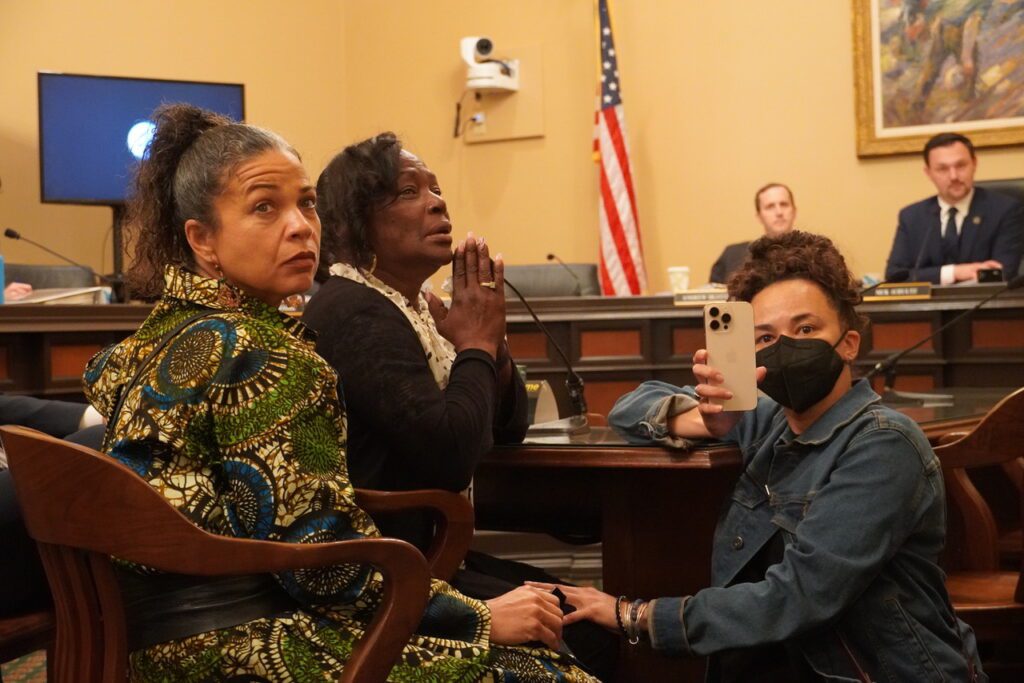
By Antonio Ray Harvey | California Black Media
Assembly Bill (AB) 1269, also known as Wakiesha’s Law, a California bill authored by Assemblymember Isaac G. Bryan (D-Ladera Heights), passed out of the Public Safety Committee on April 8 with a 7-0 vote.
The bill requires county and city jails to notify specific individuals when an incarcerated person is hospitalized for a serious or critical condition – of if he or she dies in custody. AB 1269 was re-referred to the Committee on Appropriations.

“If your loved one died in custody, you have the right to know, and you deserve to know,” Bryan told members of the committee before they voted. “This bill offers families basic decency and respect. That responsibility we should have taken up long ago.”
In March 2016, Wakeisha Wilson, 36, was found unresponsive in her cell while in the custody of the Los Angeles Police Department Metropolitan Detention Center. She was later pronounced dead at the Los Angeles County University of Southern California Medical Center, according to the LAPD.
Wilson’s family said they were not contacted about her death until a few days later when Wilson’s body had been taken to the morgue at the Los Angeles County Department of Medical Examiner.
On June 15, 2017, the Los Angeles County District Attorney’s Office said in a 24-page document that neither Wilson’s cellmate, the LAPD, nor the nurses and physicians who rendered medical help “are criminally liable for Ms. Wilson’s death.”
“It is the conclusion of this office that the manner of Wakiesha Wilson’s death was a suicide,” the memorandum continued.
Bryan, whose work in the Legislature has been centered on addressing disparities in the criminal justice system, said he authored AB 1269 to hold law enforcement authorities more accountable and to increase transparency in cases like Wilson’s.
During last week’s Assembly Public Safety Committee hearing for AB 1269 at the State Capitol, Wilson’s mother, Lisa Hines, testified. She told committee members that when she went to one of her daughter’s final court appearances, the case was not called. However, she was told that her daughter’s case was on the docket that day.
For the next four days, Hines said she made every attempt to find the whereabouts of her daughter by calling different jails. On the fourth day, she was given a number to call the coroner’s office.
“It was the longest four days of my life,” Hines said.
“At least they can do is the bare minimum, call the next of kin within 24 hours,” said a teary-eyed Hines. “I ask you guys to pass this bill because no parent should have to find out their child is deceased when she is in custody of the police.”
Assemblymembers Juan Alanis (R-Merced), Mark González (D-Los Angeles), Matt Haney (D-San Francisco), John Harabedian (D-Sierra Madre), James C. Ramos (D-San Bernardino), and California Legislative Black Caucus (CLBC) member Sharp-Collins (D-San Diego) all voted in favor of the bill.
Assemblymember Nick Schultz (D-Burbank), co-sponsor of AB 1269 and the chair of the Public Safety Committee, also voted to approve the legislation.
Assemblymembers Tom Lackey (R-Antelope) and Stephanie Nguyen (D-Elk Grove) abstained from voting.
“I wish there was something I could do to make it better,” Schultz told Hines. “You will have my recommendation of an ‘aye’ vote. I thank you for your bravery and courage to testify.”
The California State Sheriffs’ Association (CSSA) opposes AB 1269, citing that it understands “the desire to facilitate contact with loved ones when an incarcerated person becomes seriously ill.” Still, the bill “leaves many open questions,” the CSSA stated in the Assembly Bill Policy Committee Analysis.
“The definition of a serious or critical medical condition may include a situation when an incarcerated person needs to receive ‘life-sustaining medical treatment.’ Does a patient receiving oxygen for chronic emphysema constitute life-sustaining medical treatment? Does an insulin-dependent diabetic patient hospitalized for edema qualify?” the CSSA asked.
CSSA is a nonprofit professional organization comprising 58 county sheriffs across the state. It functions as a legislative watchdog for county sheriffs and sheriff’s personnel, as well as for citizens on law enforcement issues.
“In addition to these questions and others, we are concerned that even technical noncompliance, like a phone call that comes ten minutes after the 24-hour period has run, would subject a jail and the county to liability. For this reason, and those stated above, CSSA must oppose AB 1269,” CSSA stated.
Bryan responded that he’d had no problem with researching “current statutes for medical conditions, particularly in the health code, if there are definitions that can be used” to clear up the bill’s intent. He did remind the committee that some jurisdictions already have policies to immediately contact the next of kin in case of a medical emergency.
“If jails and lockups are having a problem with so many people dying or so many experiencing serious medical injuries or illness that they have to be transported out of facilities to receive care, I think we have another whole issue we need to address. This (AB 1269) is simply about notification,” Bryan said.
Hines said she hopes her advocacy can help others and contribute to adopting a policy solution that lasts.
“I am not just asking for my baby. I am asking for the next person,” Hines said. “This law is so important that it might put a bridge between the community and police.”




